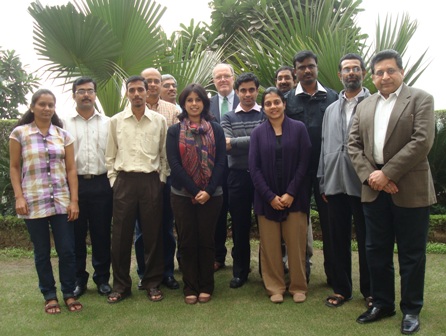News
 In December 2011, a select group of advanced modelers gathered in Delhi for a three-day training on the Energy Forecasting Framework and Emissions Consensus Tool (EFFECT). EFFECT is an Excel-based, bottom-up, engineering style model designed to support low carbon development planning, and scenario and consensus building.
In December 2011, a select group of advanced modelers gathered in Delhi for a three-day training on the Energy Forecasting Framework and Emissions Consensus Tool (EFFECT). EFFECT is an Excel-based, bottom-up, engineering style model designed to support low carbon development planning, and scenario and consensus building.
EFFECT was born out of a country-specific study in which ESMAP supported the Government of India in helping to assess opportunities and strategies for low carbon growth in that country. The result of the study is an innovative model that examines CO2 emissions from the power generation, transportation, residential building, nonresidential building, and industrial sectors. The December event provided hands-on training for EFFECT and served to hand over the ownership of the India low carbon development work to its planners.
The workshop also focused on the design, use, and future development of the World Bank’s EFFECT model. The participants—from the Center for Study of Science, Technology & Policy (Bangalore), Prayas Energy Group (Pune), the Madras School of Economics (Chennai), and the Delhi School of Economics—all agreed on the usefulness of the EFFECT tool to build consensus across the economy.
The participants requested the help of the World Bank in providing training on EFFECT to a wider audience. They also noted the value of extending the model to include activity from other sectors of the economy—in particular Construction, Small- and Medium-Enterprises, Fluvial and Coastal Water Transport, Aviation, and Agriculture.
